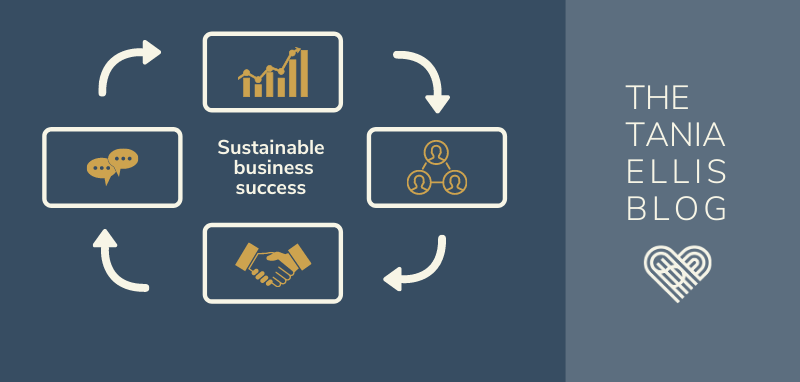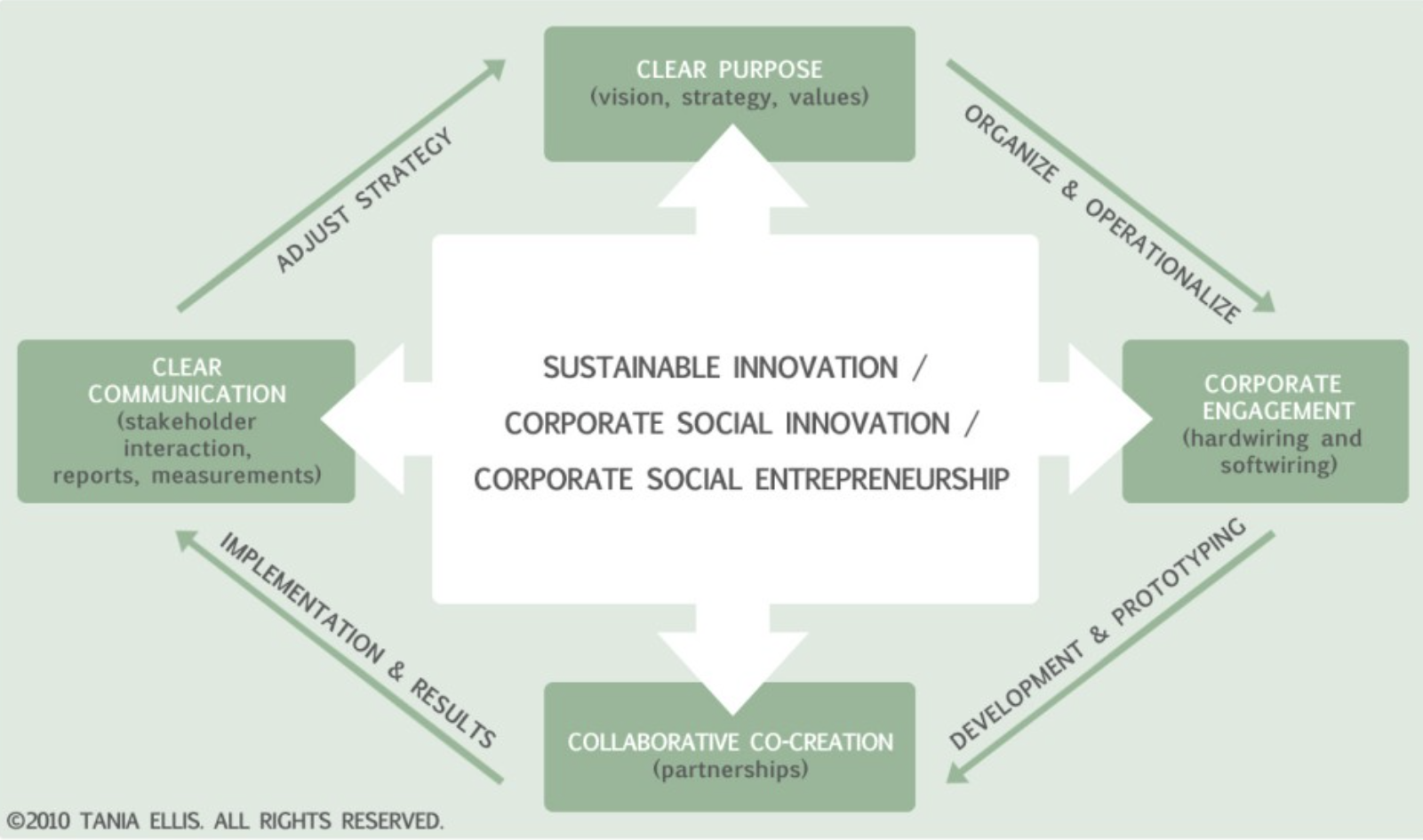- Back
- Tania Ellis
- January 4, 2011

THE 4CS OF SUSTAINABLE BUSINESS SUCCESS
There is no one formula for sustainable value creation, partly because it is a journey more than an end-state, but also because it depends on the company’s culture, ambitions, market challenges etc.
Reviewing many of the current guidelines, tools and practices of champions, there are, however, some enabling factors that recur. In The New Pioneers we have compiled them into four essential cornerstones: The 4 Cornerstones (4Cs) of Sustainable Business Success © : Clear Purpose, Corporate Engagement, Collaborative Co-creation and Clear Communication. They can be used as overall guidelines on the road to sustainable business success.
THE FOUR CORNERSTONES (4CS) OF SUSTAINABLE BUSINESS SUCCESS

1. CLEAR PURPOSE
One important key is to select social and/or environmental activities to match the company’s business competences and reflect its culture, values, challenges and business strategy.
This may imply a new vision of business outcomes and asking fundamental questions like “What does sustainability mean to our business?” and “How genuinely committed are we to creating sustainable value? Is it to improve public relations, win over competitors, develop new product lines or to ultimately transform the whole business in the long term? And, because businesses must plan for the long term in a climate still dominated by quarter-to-quarter thinking, equally important is “How much are we willing to invest before there is a return?”
Consequently, this first enabling C can only happen if company gatekeepers – CEOs, CFOs and board members – give permission to and lead the change.
Read more about how you can put ‘Clear Purpose’ into practice >
2. CORPORATE ENGAGEMENT
The vision and strategy must also be accompanied by changes in the company’s ‘hardwiring’ as well as ‘softwiring’, i.e. with accompanying structures, processes, performance and measurement systems in support of the sustainability ambitions as well as communications, employee and leadership development programmes designed to encourage sustainable value creation, thinking, skills and practices.
It is important to involve not just CSR-responsible employees, but the entire company across all divisions of the organisation, e.g. sales, marketing, finance, so they are engaged in, for example, the development of sustainability initiatives or implementation follow-ups within departments and functions.
In addition to top management, catalysts include vice presidents responsible for, for example, sustainable development and/or corporate responsibility, human resource managers, external consultants – or dedicated social intrapreneurs.
Get inspired with employee engagement cases from this article >
Read more about how you can put ‘Corporate Engagement’ into practice >
3. COLLABORATIVE CO-CREATION
Sustainable value creation also implies that external stakeholders – online as well as offline – are turned into potential strategic partners by inviting them to join the innovation process.
Not only because they hold unique knowledge that can renew and improve business activities, but also because they can infuse mainstream companies with new mindsets, values and energy. Potential collaborators include citizens and local communities with grassroots initiatives; social entrepreneurs that may have already developed the required solutions; opinion-makers or specialist consultants who can provide new ideas and insights into the selected challenge; NGOs or academic institutions with specialist knowledge; other companies – even competitors – with complementary core competencies etc.
The third enabling C requires technologies as well as people inside the company with relevant specialist and networking skills that enable them to connect with others and build successful partnerships.
Read more about how you can put ‘Collaborative Co-creation’ into practice >
4. CLEAR COMMUNICATION
Openness, transparency and clear communication of both successes and failures towards internal as well as external stakeholders in order to build trust and mutual understanding is critical to sustainable business success.
If traditional communication channels are combined with, or even turned into, interactive activities, it will be possible to react quickly to mistakes as well as to harvest potential ideas and feedback from stakeholders outside the company.
Communication channels include annual reports, non-financial accounts, corporate websites, PR and publications, social media like blogs and other online forums. But also books, speeches, articles and public engagement by key people in the company, including the CEO, are important for authenticity and credibility.
Read more about how you can put ‘Clear Communication’ into practice >
You may also like…
guides & tools


other relevant posts
Related services






















